Robust answers in tow for business recovery
The Ministry of Planning and Investment (MPI) has submitted to the government a hallmark draft resolution on a number of key policies and solutions for assisting businesses to achieve their rapid and sustainable recovery until 2025.
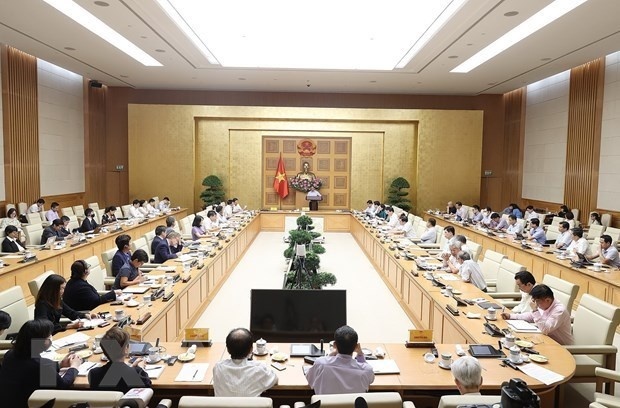 |
| Robust answers in tow for business recovery, The view of the meeting (Photo: VNA) |
The draft resolution, set to be issued this week amid confidence of enterprises and investors growing strongly, said that Party and state will give maximum support to businesses to develop. “We consider removing barriers for businesses as a top political task, by clearing bottlenecks, mobilising and freeing social resources for development investment; highlighting the spirit of companionship with the business community; ensuring equal rights for all firms, and economic sectors to access resources and policies,” emphasised the draft resolution.
Thereby, the resolution ensures the stability, consistency, predictability, clarity, transparency, and effectiveness of the policies. The investment and business climate will continue to be improved towards openness, convenience, safety, and friendliness, approaching international standards; as well as simplifying pre-inspection and strengthening post-inspection.
Challenges for businesses
The business community has been eager to see such a decisive move from the government as they have been struggling to stay afloat over the past couple of years.
At last week’s conference between the prime minister and the business community, Truong Van Cam, vice chairman of the Vietnam Textile and Apparel Association, said that the production and business of the industry in the first seven months has been quite good, with abundant orders and the gradually-stabilising labour force. The total export-import turnover reached $26.55 and 15.48 billion, up 16.5, and 27.9 per cent on-year, respectively, with a trade surplus of $11.07 billion, up 31 per cent on-year.
However, companies still face plenty of difficulties. The textile and garment industry aims to mainly export, so depending on fluctuations in the world’s geopolitics such as in China, Japan, and South Korea, is causing obstacles in supplying materials and consumption.
“Inflation in the United States and Europe also affects the purchasing power, causing the decrease of orders, while the conflict between Russia and Ukraine also increases the input materials, and transportation costs are also very high – about three times higher than five years ago,” Cam explained.
With the same concern, Nguyen Hoai Nam, vice general secretary of the Vietnam Association of Seafood Exporters and Producers, said that the industry is still being affected by the consequences of the pandemic, and the broken international supply chains in the previous period have not yet recovered totally.
“High inflation pulls purchasing power down, including seafood, while costs of husbandry and production are increasing, affecting the competitiveness of Vietnam’s seafood,” said Nam.
Specifically, he said that the cost of shipping and labour has increased over two years, that in the US West Coast is currently at VND400 million ($17,400) for a container, and in Europe, it has risen four times to about $12,000. In the country, other costs of packaging and chemicals are also soaring.
“Unless receiving support from the government, our products’ competitiveness will be lost,” Nam stressed. “Moreover, credit is tightening since early August, while inventories are getting higher. Businesses will not be able to collect money to pay to the bank, and they will not be able to lend a new loan.”
Agreeing with the concerns, Minister of Planning and Investment Nguyen Chi Dung said, “The increase in raw material costs is higher than the growth of revenues in the second quarter of 2022 compared to the previous quarter and the same period last year,” said Dung.
Resolve them quickly
To resolve these woes, in the draft resolution, the government asks all ministries and agencies to continue cutting down the costs for businesses, and facilitate them to reach credit and preferential loans. So the government asks the Ministry of Finance to find out solutions to reducing added-value and special consumption taxes on fuel, and use measures to supporting the likes of farmers and transport businesses.
Besides that, the State Bank of Vietnam will propose solutions to provide more capital for production and business activities, especially those in priority industries.
In order to overcome the interruption of supply chains, diversify export markets, and extend the domestic market, the government has asked the Ministry of Industry and Trade to support businesses in diversifying supply resources and looking for new export markets.
In the short term, the MPI minister proposed to soon remove obstacles to investment projects that have been licensed already, and faced a lot of difficulties during implementation. “The implementation of investment projects, especially public ones, are among the most important tasks to unlock resources for production, business, and economic development,” emphasised Minister Dung.
For the long term, the MPI suggested continuing to improve the business investment environment, reforming administrative procedures, boosting investment in the construction of socioeconomic infrastructure to enhance national competitiveness, decreasing inspection of enterprises, and building trust for businesses to maintain a long-term and sustainable business and production.
“Additionally, we should support enterprises to restructure labour, improve human resources to meet the requirements of innovation and Industry 4.0, and mobilise and effectively use the Vietnamese knowledge network in the country and abroad,” the MPI minister highlighted.
Based on dozens of solutions that the MPI proposed to the government to remove obstacles, the government expects businesses to stabilise production and business activities, develop green and sustainable production and business, and improve their competitiveness.
The resolution of the government targets to have 1.5 million businesses by 2025, contributing 65-70 per cent to the country’s GDP, creating 30-35 per cent of all jobs in the economy, and 98-99 per cent of total export turnover.
| Pham Minh Chinh-Prime Minister
I highly appreciate the contribution of the business community to the achievements of the national socioeconomic development. I am sorry for the challenges they are struggling with and congratulate businesses that reported outstanding outcomes. I believe that the Vietnamese business community is increasingly brave and strong to build an independent and self-reliant economy and prosperous country. In the short term, we should focus on implementing a number of solutions. Firstly, we will have to urgently remove obstacles and legal barriers that have not been resolved for a long time, hindering production and business activities. For example, the Ministry of Construction must urgently study and propose solutions to remove difficulties in legal and construction investment procedures. The Ministry of Agriculture and Rural Development must work with relevant agencies and localities to promote solutions to overcome the EU’s “yellow card” for illegal, unreported, and unregulated fishing. Secondly, it is needed to continue reducing taxes, petrol fees, and prices of input materials for production and business; researching and developing areas of raw materials to replace imported materials. Thirdly, we must continue to implement synchronously and effectively COVID-19 pandemic prevention, especially in vaccination. Fourthly, it is necessary to strengthen the connection between labour supply and demand, and train and re-train workers to meet market requirements. The government has allocated a budget for this issue in the recovery and development programme. Fifthly, we will have to accelerate planning and investment in the construction of socioeconomic infrastructure to improve the capacity and competitiveness of the economy. We have never spent as many resources as on strategic infrastructure development, especially in transport. Enterprises participating in these projects should share risks, along with the country to overcome difficulties at present. Sixthly, it is needed to boost institutional reforms, reduce and simplify administrative procedures and business conditions, improve the business environment, promote the implementation of online procedures, apply for non-cash payments, create the most favourable conditions for businesses, and prevent corruption. | ||
| To Hoai Nam-Vice chairman, Vietnam Association of Small- and Medium-sized Enterprises
Our association has asked the government to expand loans for small- and medium-sized enterprises (SMEs), paying special attention to credit loans for firms operating in export, innovation, supporting industries, and manufacturing. The association’s member companies expect the government to extend the policy of financial and tax support until the end of 2023. Besides this, the government should quickly issue policies to support online shopping for SMEs and 5.2 million business households to help them adapt to the drastic and rapid changes from traditional shopping to online shopping. This is considered a special solution to promote their development. The government and authorities should create favourable conditions for SMEs to tender for procurement of goods for public works worth below VND5 billion ($217,000) and procurement of service goods worth below VND3 billion ($130,000). For both, the authorities should prioritise selecting micro and small businesses as sub-contractors. Furthermore, it is necessary to implement supporting programmes for SMEs in their innovation process. They expect a favourable mechanism to encourage private investors to establish the breeding grounds for micro and small businesses in order that their businesses will improve their capacity to provide technical supporting services for SMEs. | ||
| Le Hoang Chau-Chairman, Ho Chi Minh City Real Estate Association
The real estate market at the end of 2021 and the first half of 2022 has adapted and gradually recovered, but remained at roughly half the volume of 2017. There are some worrying signs, such as a mismatch between supply and demand and a very short supply of housing, especially affordable housing, social housing, and housing for workers. Housing supply has continuously decreased since 2018. Enterprises seem to be tired of reduced liquidity and difficulty in accessing credit capital and issuing bond capital. Particularly in the first quarter of 2022 and in July, real estate enterprises did not issue any new bonds. | ||
| Le Quang Trung-Vice chairman Vietnam Logistics Association
We propose two key solutions to promote the development of the logistics sector. The first one is to promote transportation, supply chains, and brands. The second one is to foster the connection between large logistics centre platforms and ecosystems, especially the national seaport system in this country. To take maximum advantage of ecosystems, it is essential to support the development of Vietnamese-branded fleets, especially container fleet and ports. In addition, transportation must be able to link goods. The mechanism needs to be consistent with international factors and at the same time in harmony with domestic conditions. | ||
| Pham Viet Dung - Chairman, Vietnam Aviation Business Association
Vietnam’s aviation market is recovering, but not evenly across all segments. The domestic market has fully recovered, while the international one has resumed slowly. Infrastructure of the aviation industry is still overloaded despite significant improvements in recent years, especially in large airports. We want collaboration of state authorities to remove obstacles at airports and amend a number of legal documents on equitising capital of the infrastructure of the industry. We should also soon restore and promote air traffic with countries that have a large number of visitors to Vietnam, and expand international routes. | ||
| Nguyen Quoc Hiep - Chairman, Vietnam Association of Construction Contractors
Revenues of some Vietnamese construction businesses have grown by nearly 300 per cent on-year. However, due to material prices soaring, many woes persist. Many projects that have been put into operation for a few years have not yet been settled. Meanwhile, the contractors had to take out bank loans, incurring high-interest rates and leading to a standing debt situation that lasts from one project to another. We suggest a review of state budget capital to make accurate statistics on the amount of construction debt in previous years and report to the prime minister to cut off all accumulated debts to settle completely for contractors. | ||
| Pham Van Tai - General director THACO Group
We have made many proposals to create a driving force for the sustainable development of the supporting industry, automobile assembly, and manufacturing. In order to help domestic enterprises increase the localisation rate and improve competitiveness, we need amendments and supplements to the Law on Special Consumption Tax. For the mechanical and supporting industries, the Law on Industrial Development should be added to the law-making programme in 2023, which will create a legal corridor to attract enterprises to invest and develop industrial production and promote the building of an autonomous industry. |
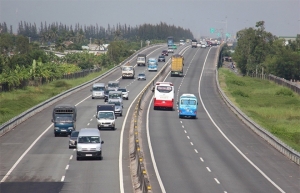 | Government sets up six working groups to boost public investment disbursement Prime Minister Pham Minh Chinh signed Decision No.548/QD-TTg on May 2 establishing six working groups to solve problems related to the disbursement of public investment. |
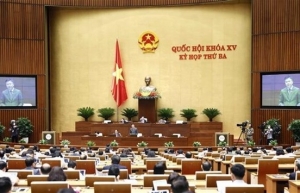 | Government proposes delay to submission of draft amended Land Law to NA The Government has proposed a delay to a submission of the draft Law on Land (amended) to the National Assembly (NA) until the Party Central Committee issues directions on reforms of land-related policies and laws. |
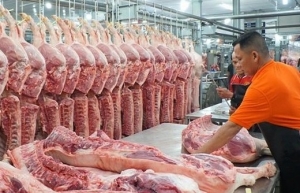 | Government orders immediate measures to stabilise pork prices In light of the rising price of pork and feed ingredients in recent times, Deputy Prime Minister Le Minh Khai has asked relevant authorised agencies to take immediate measures to ensure supply and demand and stabilise prices. |
What the stars mean:
★ Poor ★ ★ Promising ★★★ Good ★★★★ Very good ★★★★★ Exceptional
Related Contents
Latest News
More News
- State corporations poised to drive 2026 growth (February 03, 2026 | 13:58)
- Why high-tech talent will define Vietnam’s growth (February 02, 2026 | 10:47)
- FMCG resilience amid varying storms (February 02, 2026 | 10:00)
- Customs reforms strengthen business confidence, support trade growth (February 01, 2026 | 08:20)
- Vietnam and US to launch sixth trade negotiation round (January 30, 2026 | 15:19)
- Digital publishing emerges as key growth driver in Vietnam (January 30, 2026 | 10:59)
- EVN signs key contract for Tri An hydropower expansion (January 30, 2026 | 10:57)
- Vietnam to lead trade growth in ASEAN (January 29, 2026 | 15:08)
- Carlsberg Vietnam delivers Lunar New Year support in central region (January 28, 2026 | 17:19)
- TikTok penalised $35,000 in Vietnam for consumer protection violations (January 28, 2026 | 17:15)


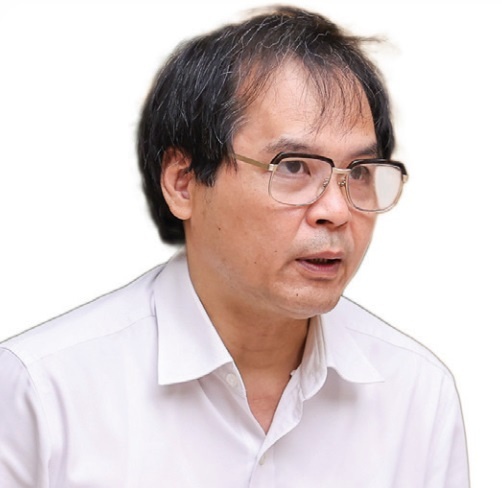
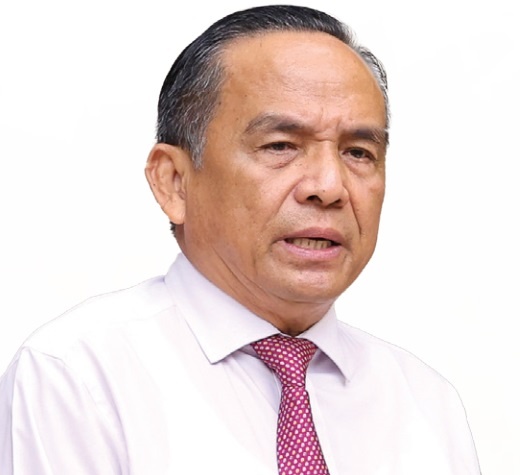
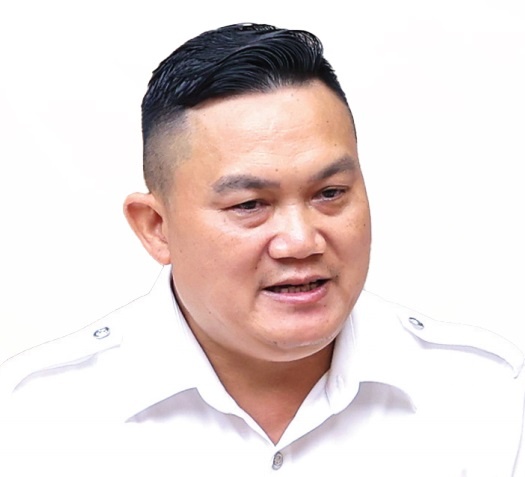
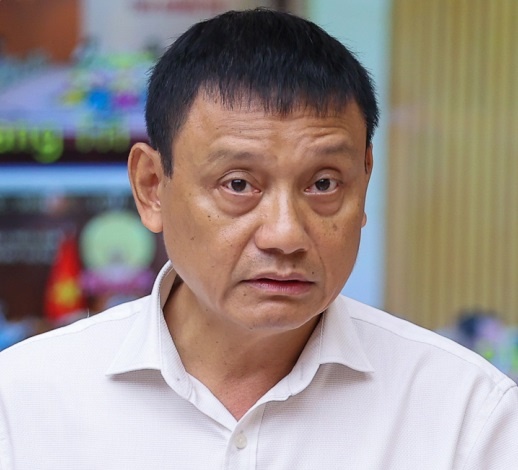
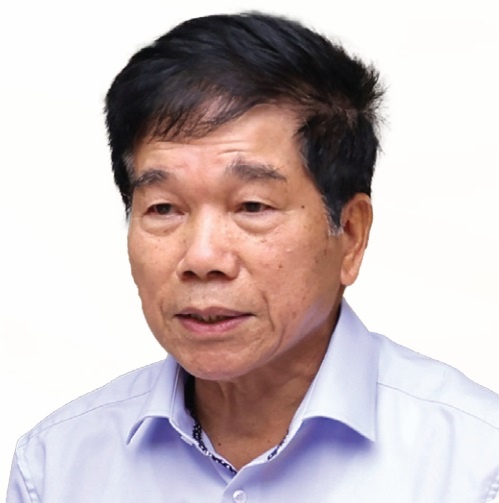
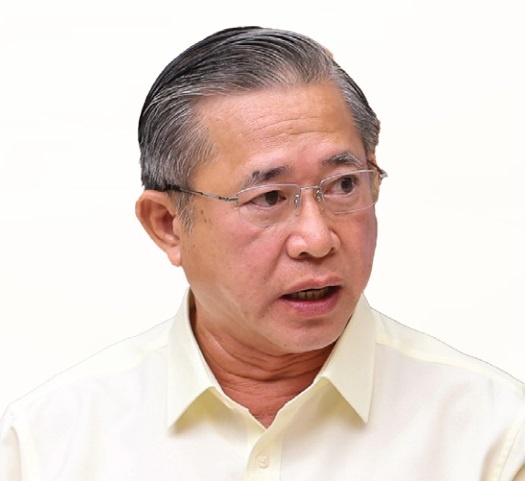
 Tag:
Tag:




















 Mobile Version
Mobile Version